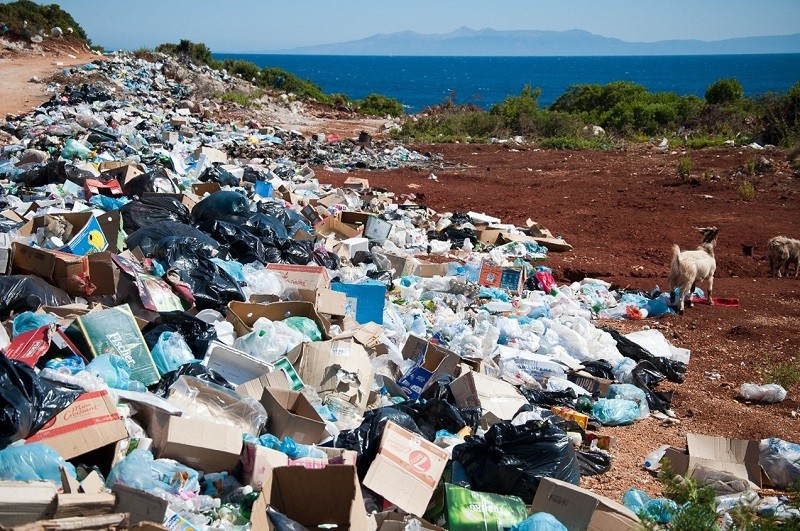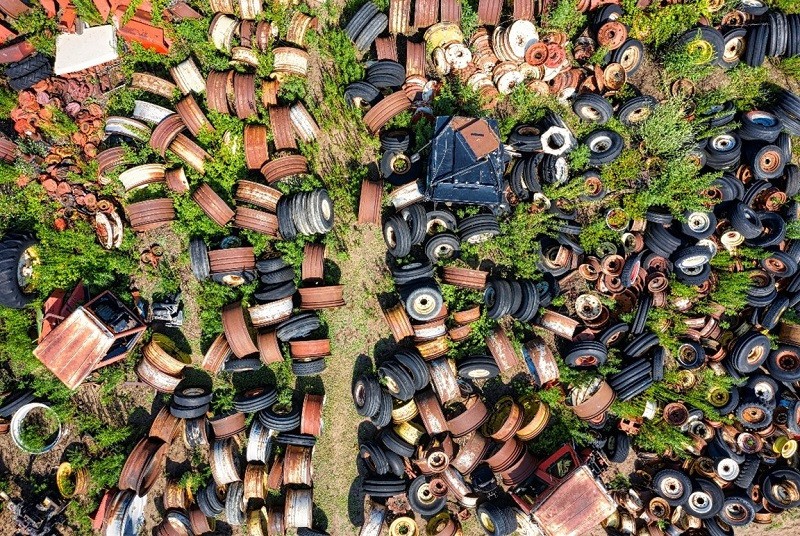GMV participates in the fight against organized environmental crime through EMERITUS

Environmental crimes, including air, water, and soil pollution, and the shipping and trafficking of hazardous materials and waste, have enormous impacts on the climate, human health, and the environment. Prevention is challenging, as the difficulty of providing convicting evidence means that committing these crimes comes at a relatively low risk. The EMERITUS (Environmental crimes intelligence and investigation protocol based on multiple data sources) project addresses the “fight against organized environmental crime” by focusing on water pollution, cross-border illegal waste trafficking, and waste storage.
EMERITUS aims to create a platform for law enforcement authorities and border guards to improve investigative proof collection capabilities against environmental waste crimes, based on three key elements: the EMERITUS platform, protocols for investigating waste-related crimes, and the training program for investigating environmental crimes.
GMV is in charge of coordinating the EMERITUS project and is leading two of the work packages.
GMV is also participating in work related to creating investigation protocols, including the development and integration of platform building blocks, management of the stakeholder community, decision-making support, and project outreach.
Generation of ultra-high resolution images
At a technical level, GMV is contributing to the detection of dumping and analysis of cross-border trafficking and illegal storage of waste using satellite images and machine learning techniques. The company will use super-resolution to augment the capabilities of the images provided by COPERNICUS, the European Union’s Earth Observation Program, with the goal of detecting illegal waste storage by generating high-resolution versions of low-resolution images.
Increasing the resolution of Earth observation images (super-resolution) is a technique that creates enhanced images based on artificial intelligence algorithms. For a super-resolution algorithm to be efficient in an extremely high variance domain, such as Earth observation, a large number of low- and high- resolution pairs must be provided.
For an accurate representation of high-resolution features, the algorithm must establish a precise correspondence between low- and high-resolution pixels using a technique called co-registration, where the pixels are perfectly aligned. The algorithm used to enhance Sentinel 2 data from 10 meters/pixel to 2.5 meters/pixel spatial resolution is an SR Densenet that uses dense layers to extract high-level features. With this higher resolution of 2.5 meters, Sentinel-2 SRR can be used for a variety of tasks, one of which is the detection of potentially illegal waste sites for the EMERITUS project.
The study’s exhaustive analysis of waste detection algorithms is the first exploration of super-resolution enhancement and involves evaluating different areas within the EMERITUS project. The goal is to evaluate the performance of a model trained on high-resolution images when applied to downscaled samples and to analyze the impact of introducing super-resolution techniques.
The EMERITUS program will promote the adoption of state-of-the-art technology for investigating environmental crimes while at the same time giving law enforcement agents and border guards greater experience (training programs) and facilitating the legal and court-ready collection of evidence of crimes (protocol) and cross-border and multidisciplinary collaboration (CoP). In this way, EMERITUS will ultimately contribute to improving environmental crime prevention, detection, and deterrence, as well as evidence-based policymaking in this field at the domestic, cross-border, and international levels.
EMERITUS, which started in September 2022, will run for 36 months, and so is expected to have hit all its milestones by August 2025. The partners in the consortium are as follows:
GMV
GEOVILLE INFORMATIONSSYSTEME UND DATENVERARBEITUNG GMBH (GEOVIL) Austria
LOGIKERS SL (LOGIKERS), Spain
INESC TEC - INSTITUTO DE ENGENHARIADE SISTEMAS E COMPUTADORES, TECNOLOGIA E CIENCIA (INESC TEC), Portugal
POLITECNICO DI TORINO (POLITO), Italy
CETAQUA, CENTRO TECNOLOGICO DEL AGUA, FUNDACION PRIVADA, (CETAQUA), Spain
FONDAZIONE SAFE (SAFE), Italy
CRIME AND TECH SRL (C&T), Italy
ZABALA BRUSSELS (ZAB BE), Belgium
ZABALA SPAIN (ZAB ES), Spain
ASOCIACION CIFAL MALAGA (CIFAL), Spain
KENTRO MELETON ASFALEIAS (KEMEA), Greece
COMUNE DI TORINO (PLTO), Italy
MINISTERO DELLA DIFESA (IT-CC), Italy
HELLENIC POLICE (GRBG), Greece
INSPECTORATUL GENERAL AL POLITIEI (MD POL), Moldova
INSPECTORATUL GENERAL AL POLITIEI DE FRONTIERA (RO BG), Romania
GARDA NATIONALA DE MEDIU (GNM), Romania
AYUNTAMIENTO DE MALAGA (MOM), Spain
INSPECTORATUL PENTRU PROTECTIA MEDIULU, Moldova
AIR AND SPACE EVIDENCE (ASE), United Kingdom
